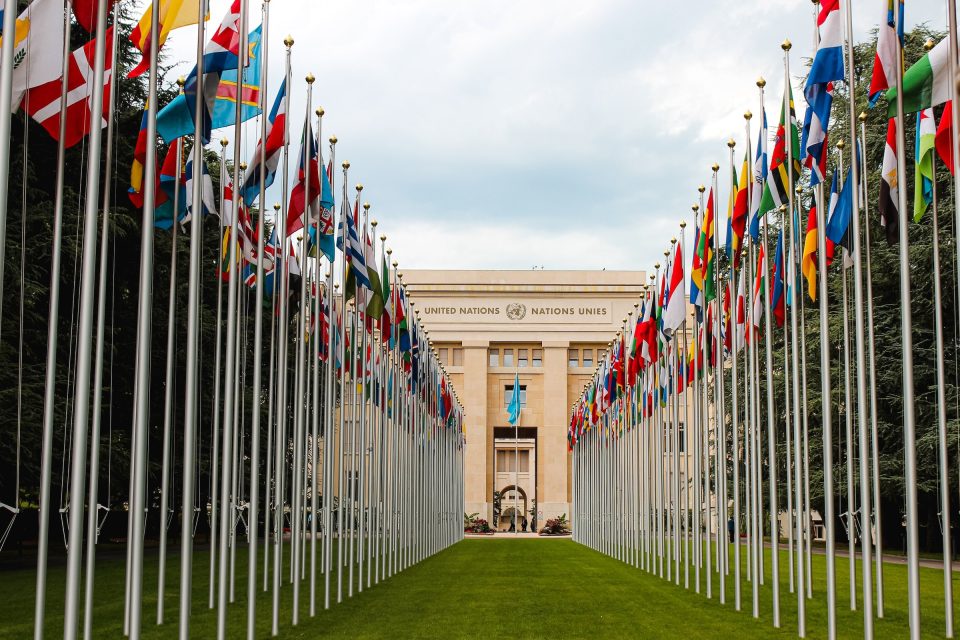The United Kingdom’s commitment to harnessing the power of artificial intelligence (AI) for international development is set to take center stage at the United Nations. With a decade of experience in the field, I’ll provide valuable insights into the UK’s approach to leveraging AI for global progress in this expert article.
AI as a Catalyst for Global Development
AI technologies have evolved rapidly in recent years, offering unprecedented opportunities to address pressing global challenges. The UK recognizes the potential of AI to drive international development, and it is actively promoting its adoption in collaboration with international partners. The country’s initiative aligns with the UN’s Sustainable Development Goals (SDGs), emphasizing the use of AI to enhance healthcare, education, agriculture, and more in developing nations.
The UK’s Role in Promoting AI for Good
The UK has positioned itself as a global leader in AI ethics, governance, and innovation. This leadership extends to international development, where the UK is actively advocating for responsible AI deployment. Through initiatives like the AI for Good Global Summit, the UK fosters dialogue and collaboration among stakeholders to ensure that AI benefits marginalized communities and supports sustainable development.
Investing in AI Infrastructure
To realize AI’s potential for international development, the UK is committed to investing in robust AI infrastructure. This includes expanding access to high-quality data, promoting AI research, and facilitating technology transfer to developing countries. By building a strong AI foundation, the UK aims to empower nations with the tools and knowledge needed to leverage AI for their unique development challenges.
AI-Driven Healthcare Solutions
One area where the UK is making significant strides is in AI-driven healthcare solutions for low-resource settings. Through partnerships with organizations like the World Health Organization (WHO), the UK is pioneering AI applications that enhance disease diagnosis, predict outbreaks, and optimize healthcare delivery in resource-constrained environments. These innovations have the potential to save countless lives and improve health outcomes globally.
AI in Education: Bridging the Knowledge Gap
Education is a fundamental driver of development, and the UK recognizes the transformative potential of AI in this sector. By deploying AI-powered educational tools and platforms, the UK is working to bridge the knowledge gap in underserved regions. These tools enable personalized learning experiences, remote education access, and data-driven insights to improve teaching methods.
AI for Sustainable Agriculture
Agriculture is another critical aspect of global development, and AI can play a pivotal role in enhancing food security and sustainability. The UK is actively supporting AI applications in agriculture, such as precision farming and crop monitoring. These technologies empower farmers in developing countries to optimize their yields, conserve resources, and adapt to climate change challenges.
Global Partnerships for AI Development
The UK recognizes that addressing global challenges requires international collaboration. To this end, it is actively seeking partnerships with governments, NGOs, and industry leaders. These partnerships aim to pool resources, share expertise, and develop AI solutions tailored to the specific needs of different regions and communities.
Ethical Considerations in AI Development
The UK places a strong emphasis on ethical AI development in the context of international development. It actively promotes responsible AI practices and works to ensure that AI technologies are designed and deployed with fairness, transparency, and accountability in mind. This approach is crucial to building trust and ensuring that AI benefits all, regardless of their socio-economic status.
Challenges and Future Directions
While the UK’s commitment to harnessing AI for international development is commendable, it also faces challenges. These challenges include ensuring equitable access to AI benefits, addressing data privacy concerns, and navigating regulatory complexities on a global scale. However, by actively engaging with these issues and collaborating with international partners, the UK aims to overcome these obstacles and drive positive change.
Conclusion
The United Kingdom’s proactive stance on harnessing AI’s potential for international development is poised to make a significant impact on the world stage. Through ethical AI practices, robust infrastructure development, and strategic partnerships, the UK is paving the way for a future where AI contributes to sustainable and inclusive global development. As the UK takes this message to the United Nations, it offers a compelling vision of how AI can be a force for positive change on a global scale.

